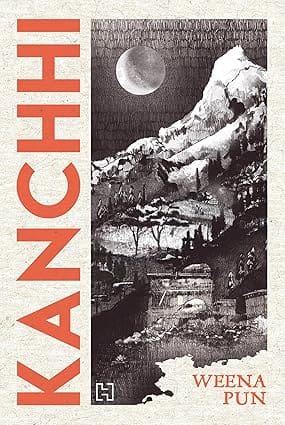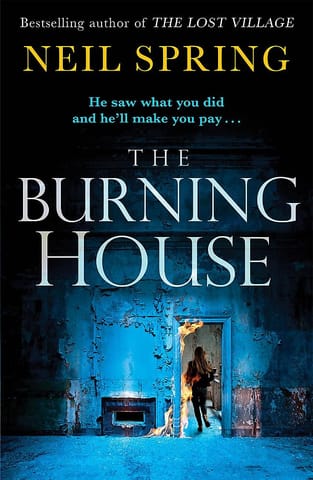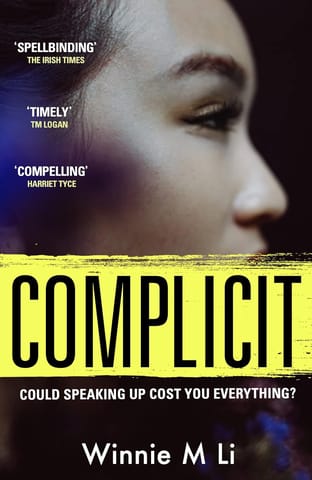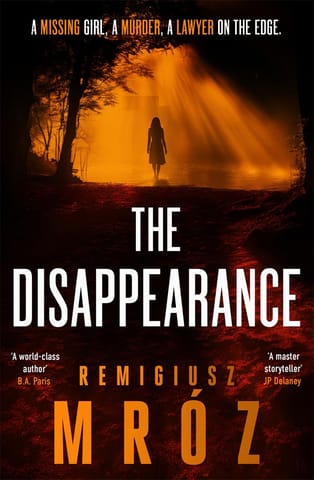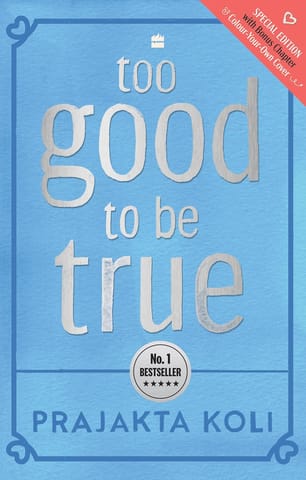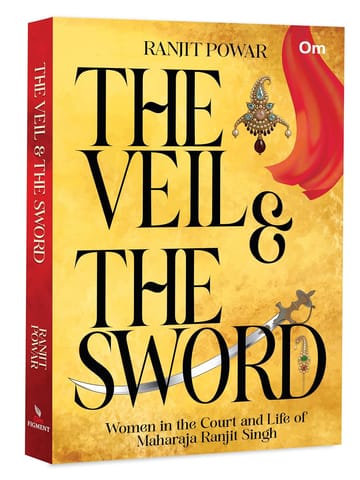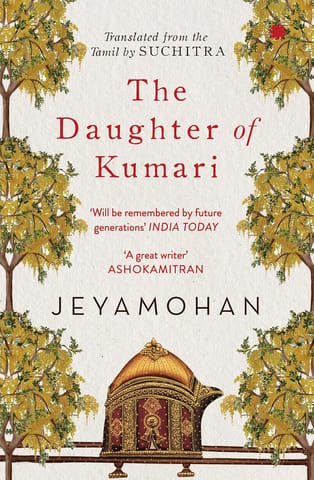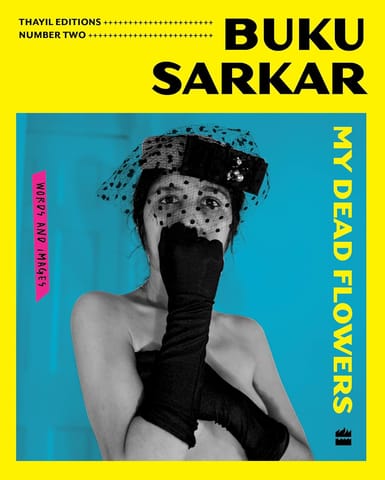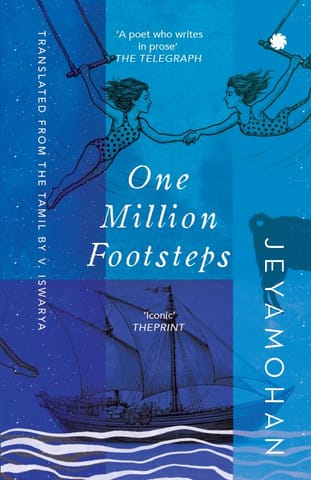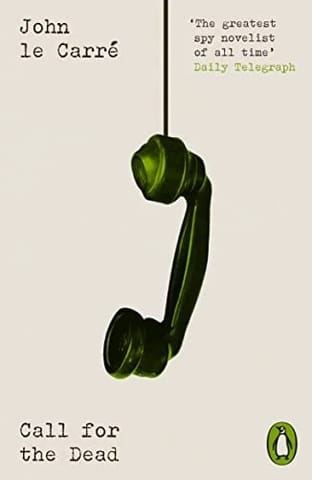- Non-ficton
- Non-ficton
- Contemporary Fiction
- Contemporary Fiction
- Children
- Children
- Comics & Graphic Novels
- Comics & Graphic Novels
- Non-Fiction
- Non-Fiction
- Fiction
- Fiction
In the misty foothills of Torikhola, Kanchhi, the only child of her mother, Maiju, refuses to play by the stifling rules of her hamlet. She befriends boys, writes letters to them, and opposes the shame imposed on her swelling ambitions and curiosity. There is a life beyond the forlorn valleys and gorges, and Kanchhi is intrigued by the possibilities. One cold November morning she leaves home – with two bags and some millet bread Maiju prepares for her. That, however, is the last anybody sees of her.
Now, a decade after Kanchhi's puzzling disappearance, echoes of her defiance grow thin. Life has moved on. For one, the civil war has arrived at the hamlet's doorstep. And yet, much has remained still. Maiju lights a lamp in front of the gods and feverishly prays for her daughter's return. And the villagers, uncertain of what befell Kanchhi, continue to debate. Did she run off, chasing the highs and lights of the big city? Or did the cruelties of the ongoing civil war engulf her whole?
In this impressively sure-footed debut, Weena Pun brings to life the political and social tremors stirring the valleys of Nepal at the turn of the millennium, as well as the tenacious, tragedy-riven women of the time. A delicate and finely wrought saga, Kanchhi is an intimate exploration of vulnerable girlhood in turbulent territories.
Review
'Kanchhi is a tender swirl of a novel, a rich multisensory immersion into the world of rural Nepal. As the Maoist uprising stirs up political rebellion, the novel follows the coming-of-age of the high-spirited protagonist as she and her single mother negotiate the myriad limitations enforced on them by their society. Weena Pun writes with exceptional intimacy and grace about the emotional and intellectual quests of girls and women. Kanchhi is a major work – a gem.' – Manjushree Thapa, author of Forget Kathmandu
'A brilliant novel by Weena Pun, where words are chosen with love. The poetic language shakes you to the core. This is not just the story of one Kanchhi; as you read, many Kanchhis begin chasing you. In the end, the story rips your heart apart like a razor blade.' – Buddhisagar, author of Karnali Blues
'What lovely and lively characters from a lonely village by the millet fields. A new and authentic voice from a western mountainside!' – Narayan Wagle, author of Palpasa Café
About the Author
Weena Pun's writings have appeared in Himal Southasian, the Kathmandu Post, The Record, House of Snow: An Anthology of the Greatest Writing About Nepal, and elsewhere. She is a graduate of Stanford University and the MFA Program in Creative Writing at Co
Kanchhi
SIZE GUIDE
- ISBN: 9789357316309
- Author: Weena Pun
- Publisher: Hachette India
- Pages: 352
- Format: Hardback
Book Description
In the misty foothills of Torikhola, Kanchhi, the only child of her mother, Maiju, refuses to play by the stifling rules of her hamlet. She befriends boys, writes letters to them, and opposes the shame imposed on her swelling ambitions and curiosity. There is a life beyond the forlorn valleys and gorges, and Kanchhi is intrigued by the possibilities. One cold November morning she leaves home – with two bags and some millet bread Maiju prepares for her. That, however, is the last anybody sees of her.
Now, a decade after Kanchhi's puzzling disappearance, echoes of her defiance grow thin. Life has moved on. For one, the civil war has arrived at the hamlet's doorstep. And yet, much has remained still. Maiju lights a lamp in front of the gods and feverishly prays for her daughter's return. And the villagers, uncertain of what befell Kanchhi, continue to debate. Did she run off, chasing the highs and lights of the big city? Or did the cruelties of the ongoing civil war engulf her whole?
In this impressively sure-footed debut, Weena Pun brings to life the political and social tremors stirring the valleys of Nepal at the turn of the millennium, as well as the tenacious, tragedy-riven women of the time. A delicate and finely wrought saga, Kanchhi is an intimate exploration of vulnerable girlhood in turbulent territories.
Review
'Kanchhi is a tender swirl of a novel, a rich multisensory immersion into the world of rural Nepal. As the Maoist uprising stirs up political rebellion, the novel follows the coming-of-age of the high-spirited protagonist as she and her single mother negotiate the myriad limitations enforced on them by their society. Weena Pun writes with exceptional intimacy and grace about the emotional and intellectual quests of girls and women. Kanchhi is a major work – a gem.' – Manjushree Thapa, author of Forget Kathmandu
'A brilliant novel by Weena Pun, where words are chosen with love. The poetic language shakes you to the core. This is not just the story of one Kanchhi; as you read, many Kanchhis begin chasing you. In the end, the story rips your heart apart like a razor blade.' – Buddhisagar, author of Karnali Blues
'What lovely and lively characters from a lonely village by the millet fields. A new and authentic voice from a western mountainside!' – Narayan Wagle, author of Palpasa Café
About the Author
Weena Pun's writings have appeared in Himal Southasian, the Kathmandu Post, The Record, House of Snow: An Anthology of the Greatest Writing About Nepal, and elsewhere. She is a graduate of Stanford University and the MFA Program in Creative Writing at Co
User reviews
NEWSLETTER
Subscribe to get Email Updates!
Thanks for subscribing.
Your response has been recorded.

India's Iconic & Independent Book Store offering a vast selection of books across a variety of genres Since 1978.
"We Believe In The Power of Books" Our mission is to make books accessible to everyone, and to cultivate a culture of reading and learning. We strive to provide a wide range of books, from classic literature, sci-fi and fantasy, to graphic novels, biographies and self-help books, so that everyone can find something to read.
Whether you’re looking for your next great read, a gift for someone special, or just browsing, Midland is here to make your book-buying experience easy and enjoyable.
We are shipping pan India and across the world.
For Bulk Order / Corporate Gifting
 +91 9818282497 |
+91 9818282497 |  [email protected]
[email protected]
Click To Know More
QUICK LINKS
ADDRESS
Shop No.20, Aurobindo Palace Market, Near Church, New Delhi

